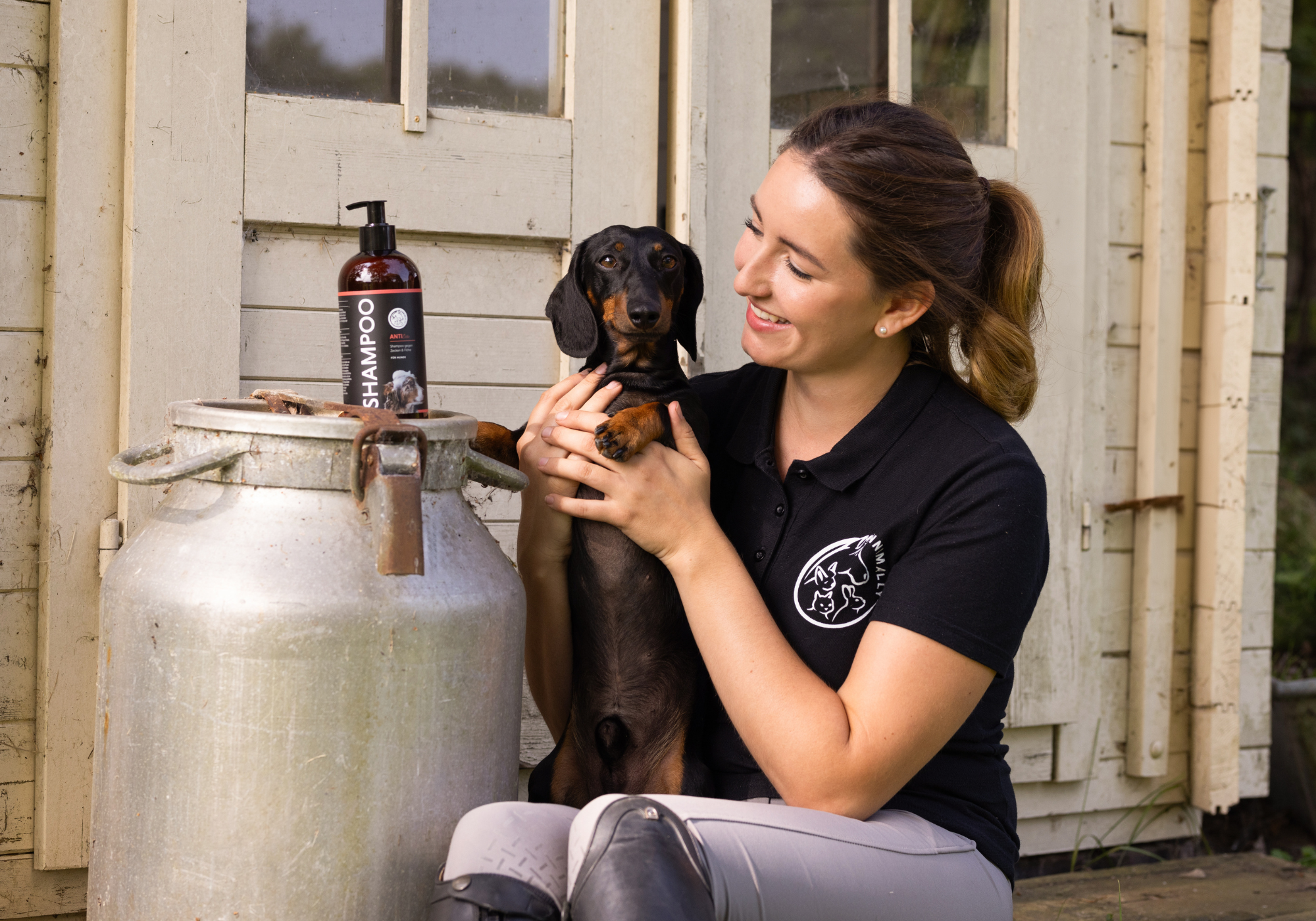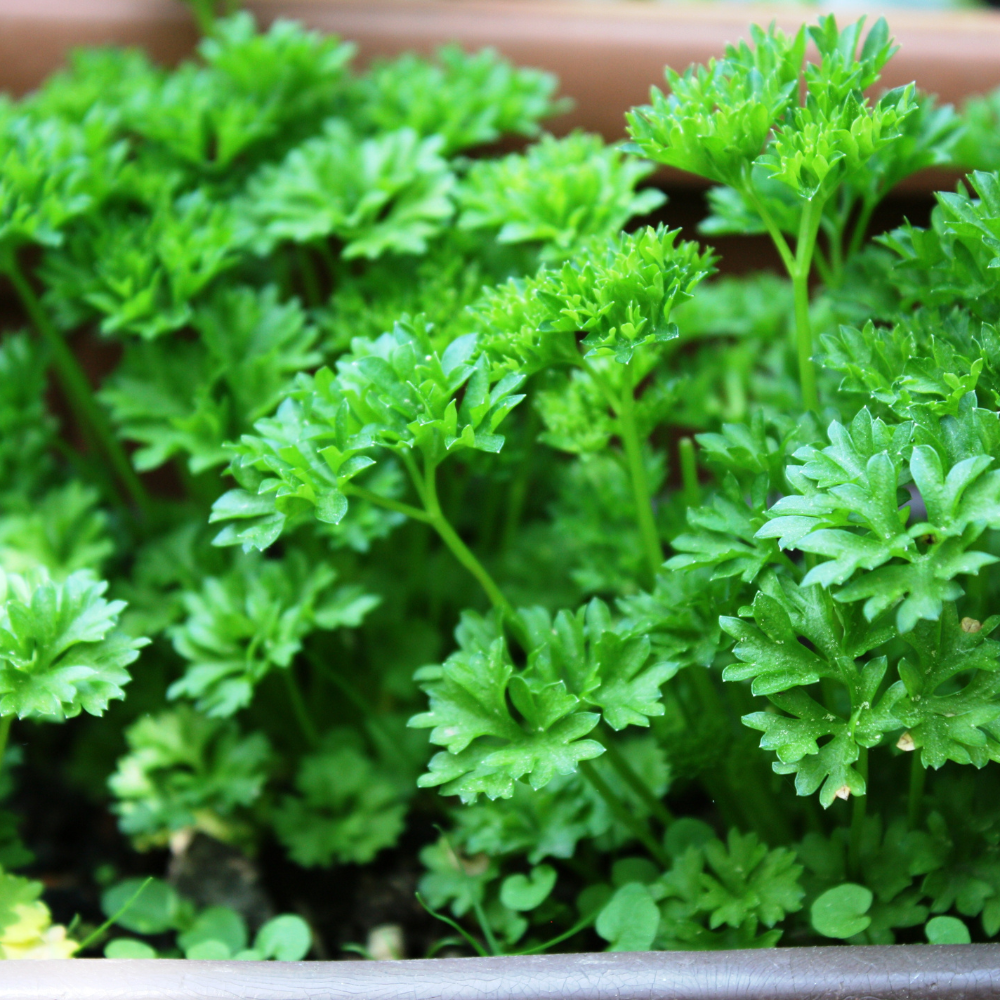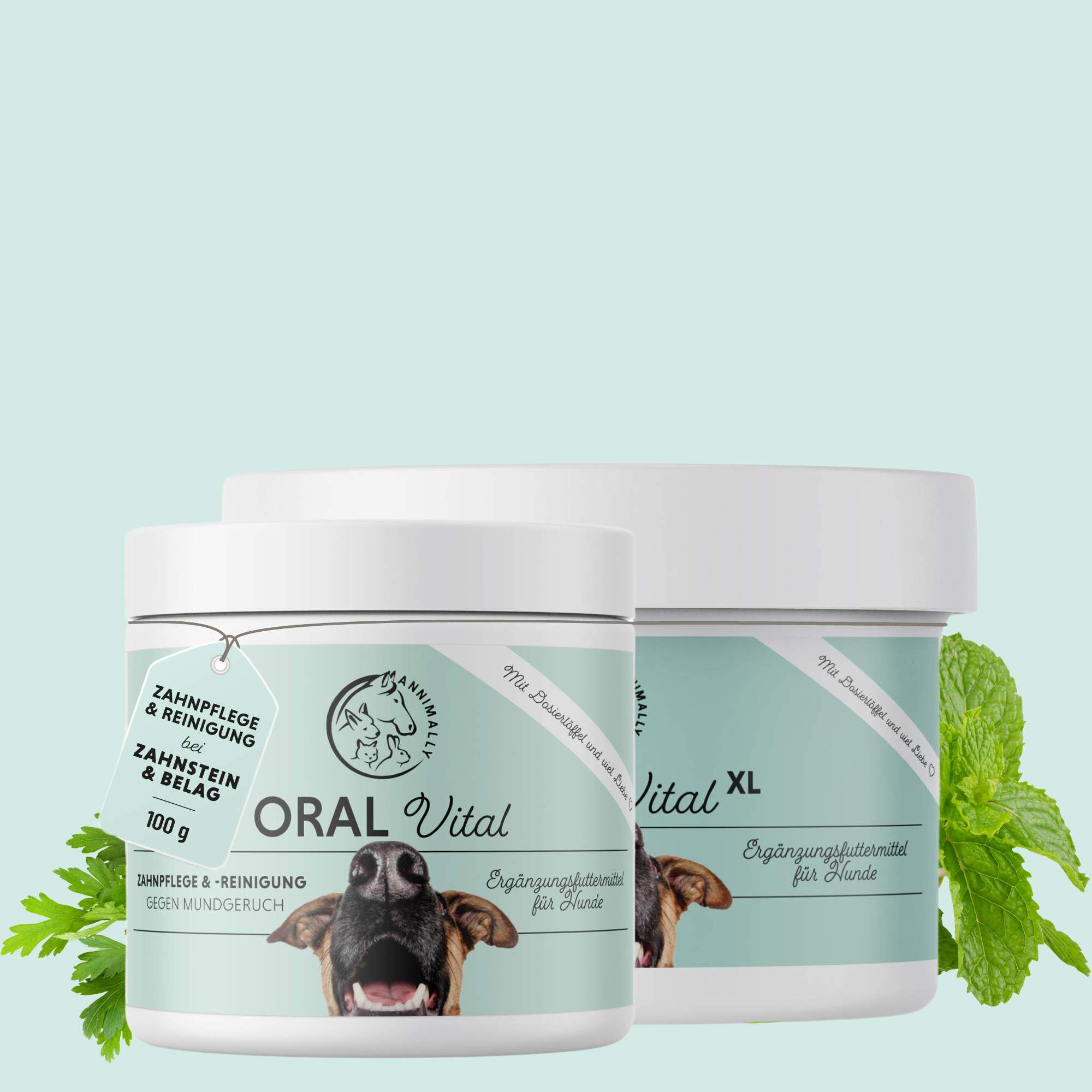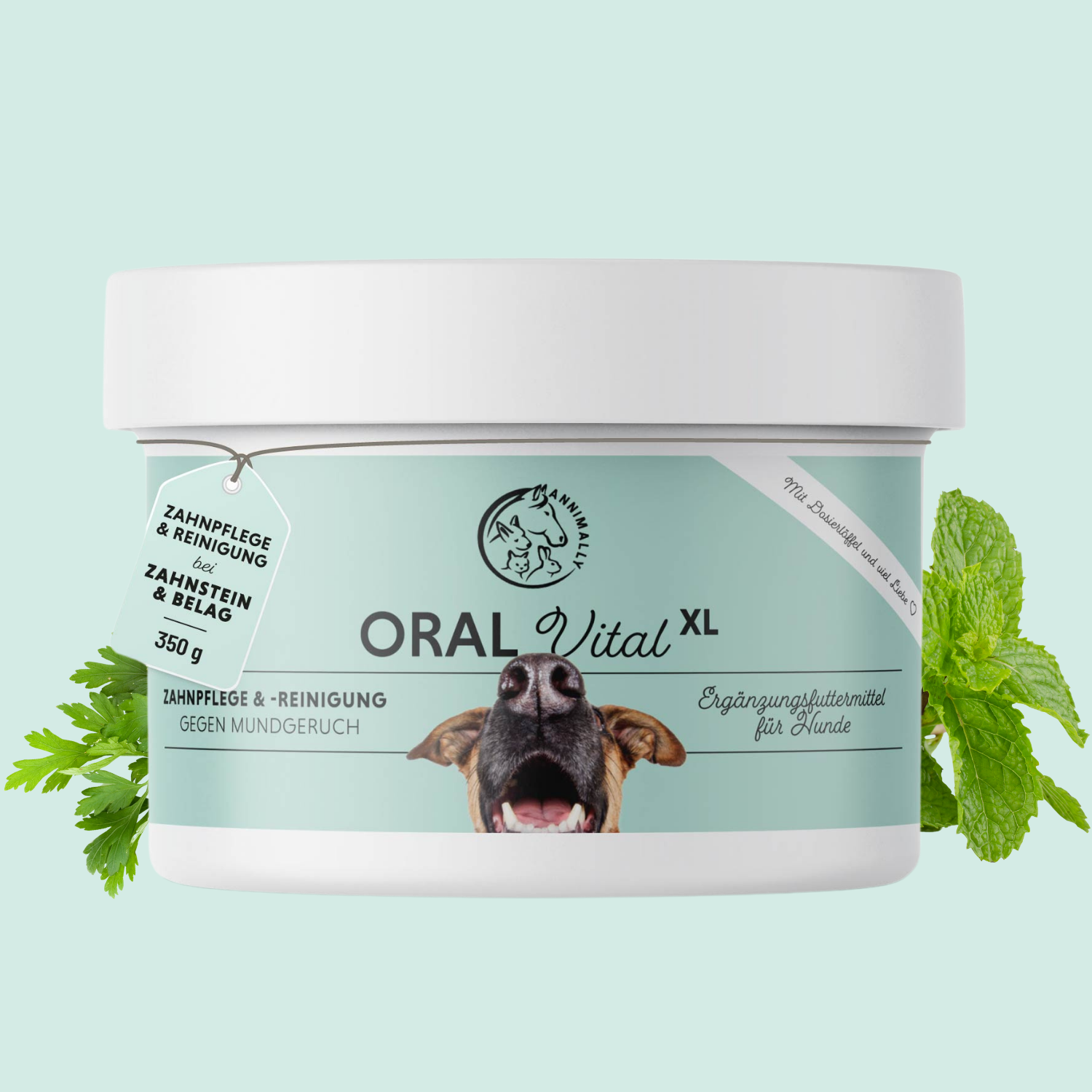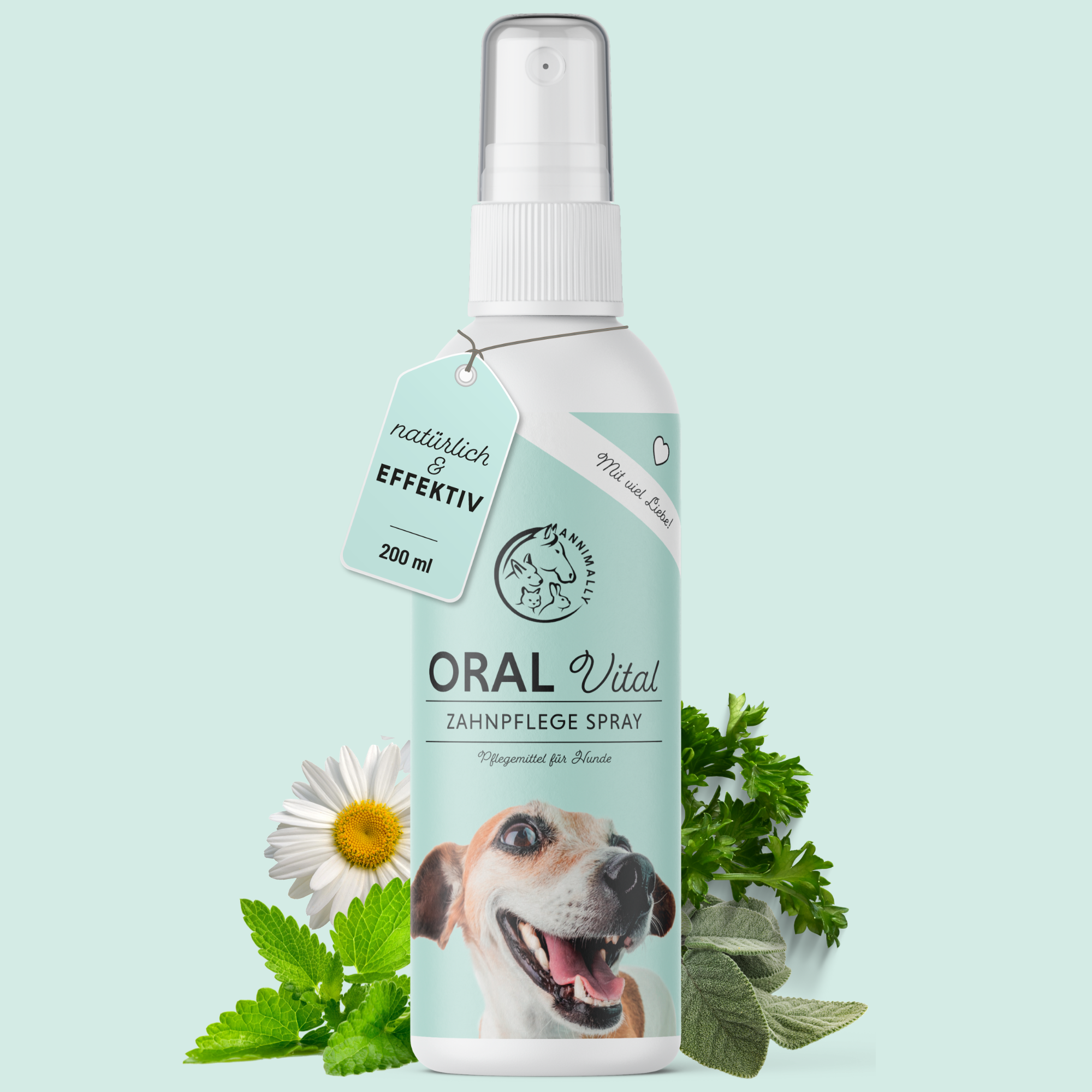Parsley for dogs: A valuable contribution to the health of your four-legged friend
Parsley ( Petroselinum crispum ) is not only a popular culinary herb for humans, but also a valuable addition to the diet of dogs. With a variety of nutrients and positive properties, parsley offers many benefits for your dog's well-being. Whether as a help against bad breath, supporting the immune system or promoting digestion - the herb can benefit your four-legged friend in many ways.
In this article, you will learn why parsley is so healthy for dogs, how to dose it correctly and what special benefits this medicinal herb offers. We will also look at the role of ingredients such as vitamin C, iron and magnesium and explain when caution is advised.

Why is parsley good for dogs?
Parsley is a real powerhouse that is full of valuable ingredients. Particularly noteworthy are the vitamins, minerals and antioxidants it contains, which can promote your dog's health in various ways.
The most important ingredients of parsley:
-
Vitamin C : A powerful antioxidant that strengthens the immune system, protects cells and helps the body fight disease.
-
Calcium : Essential for strong bones, healthy teeth and muscle function.
-
Iron : Essential for blood formation and oxygen transport in the body.
-
Magnesium : Supports metabolism, nervous system function and energy production.
-
Folic acid : Promotes cell growth and regeneration, especially important for young growing dogs.
-
Antioxidants : These protect your dog's cells from free radicals that can be caused by stress, environmental toxins or an unhealthy diet.
In addition to these important ingredients, parsley is also rich in fiber, which supports your dog's digestion, as well as essential oils that have antibacterial properties and can neutralize bad breath.
The Effects of Parsley: How the Herb Supports Your Dog
Parsley has a positive effect on various areas of dog health. Not only is it a tasty addition to food, but it also offers a number of benefits for your four-legged friend's health.
1. Support of the immune system
The vitamins contained in parsley, especially vitamin C and vitamin A, strengthen your dog's immune system. They help fight off pathogens and promote wound healing. Antioxidants also help protect cells from oxidative stress, which is important for healthy aging and your dog's vitality.
2. Promote digestion
Parsley has digestive properties that can help your dog with gastrointestinal complaints such as flatulence or mild gastrointestinal problems. The fiber in the leaves and stems stimulates digestion and ensures a healthy gastrointestinal tract. At the same time, parsley helps reduce flatulence, which is especially beneficial for sensitive dogs.
3. Fresh breath and healthy teeth
Another great benefit of parsley is its effect on breath. The essential oils in the herb neutralize unpleasant odors in your dog's mouth and ensure fresh breath. At the same time, parsley can serve as a supplement to dental hygiene, as it supports the oral flora and inhibits harmful bacteria.
How do you feed parsley properly?
The correct dosage
The amount of parsley you give your dog is crucial. Too much of a good thing can cause gastrointestinal upset or other problems in sensitive dogs. Here are general guidelines:
Small dogs : Up to ½ teaspoon of finely chopped parsley per day.
Medium dogs : Up to 1 teaspoon per day.
Large dogs : Up to 2 teaspoons, divided into two meals.
You can chop the parsley fresh and sprinkle it directly over your dog's food. Alternatively, you can add the herb to dog biscuits or herbal pastes to give your dog a tasty and healthy addition.
Tips for use
-
Use fresh parsley from your garden or buy it from the supermarket. Make sure it is free of pesticides.
-
Parsley can also be used dried. Although it contains fewer nutrients than fresh parsley, it is still a good alternative.
-
If your dog doesn't like parsley, you can combine it with other herbs like rosemary, which are also healthy.

Parsley compared to other herbs
In addition to parsley, there are other herbs that are suitable for dogs. Rosemary, for example, is also a nutrient-rich herb that has antioxidant properties. However, it has a more intense flavor and should be fed in even smaller quantities.
In contrast, parsley is particularly well tolerated due to its mild taste and is therefore one of the best herbs for dogs. Herbs such as chives or garlic, on the other hand, are poisonous for dogs and should be avoided at all costs.
If you want to use herbs to supplement your dog's diet, parsley is a safe and versatile choice.
Be careful with special circumstances for your four-legged friend
Although parsley has many benefits, there are also situations in which caution should be exercised when feeding animals. Dogs with existing kidney problems should not be given large amounts of parsley, as the herb has a diuretic effect and could place additional strain on the kidneys.
Parsley should also be consumed with caution by pregnant dogs. In high doses, the herb can induce contractions, which could be problematic during pregnancy. If you are unsure whether parsley is suitable for your dog, you should consult a veterinarian.
Parsley from your own garden for dogs
If you grow parsley yourself, you have full control over the quality of the herb. Parsley thrives both in the garden and on the balcony and requires little care. You can harvest the fresh leaves directly and offer them to your dog.
Be sure to wash the plant thoroughly before feeding to remove any residue from dirt or insects.
If you don't have fresh parsley on hand, you can also use dried varieties - but make sure that they do not contain any additives such as salt or spices.
Conclusion: A versatile herb for dogs
Parsley ( Petroselinum crispum) is a real powerhouse that offers many benefits not only to humans but also to dogs. Thanks to its valuable ingredients such as vitamin C, calcium and iron, parsley supports the immune system, promotes digestion and ensures fresh breath.
However, it is important to feed parsley in moderate amounts and to adjust it to your dog's needs. Caution is particularly important for sensitive or pregnant dogs to avoid possible negative effects.
Whether freshly chopped and added to your dog's food, as an ingredient in homemade dog biscuits or from your own garden - parsley for dogs is a healthy and tasty addition to your four-legged friend's diet. Try it out and discover how your dog can benefit from this versatile herb !


